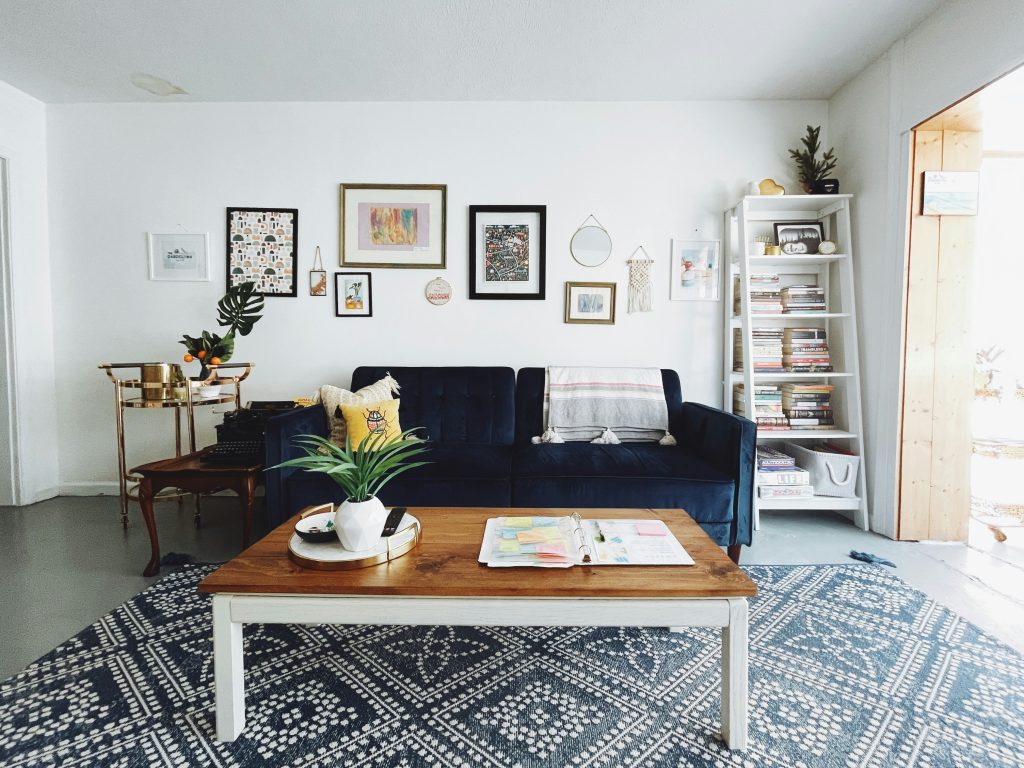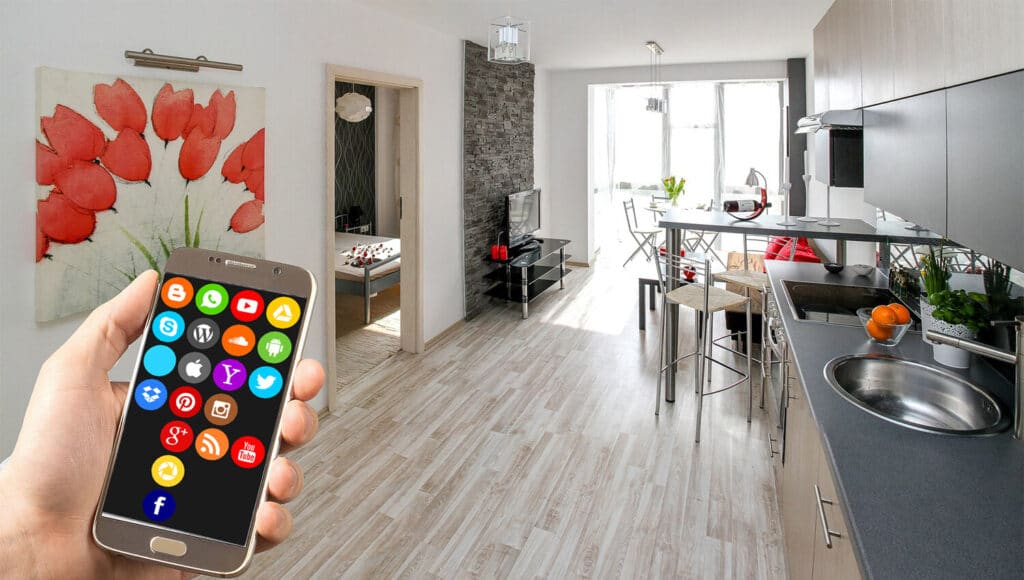
Top 10 Best Airbnb Alternatives for 2025
Planning a family holiday should be one of the most exciting things you do all year. But for many parents it can quickly becomes a very stressful endeavor.
Indeed, finding the right place to stay is often the hardest part because hotel rooms can be expensive and/or too small for a family, while self-catering apartments don’t always have the level of comfort, facilities or security you need when travelling with children.
For years, Airbnb has been the go-to solution for many people. However, for some, their experience on this platform has left a little to be desired. Hidden fees, inconsistent quality, and a lack of family-friendly features often leave many parents wishing they had found a better option.
Well, the good news is that Airbnb is no longer the only choice. In fact, today, families have access to a wide range of platforms that arguably offer safer, more comfortable, and reliable stays. Some of them promote child-friendly homes with cribs, stair gates, and play areas, while others offer curated properties with elevated levels of style and comfort, or long-term rentals that give digital nomad families a more stable base.
This guide will explore some of the best Airbnb alternatives that are out there for families in 2025. In it, we’ll compare Airbnb competitors for families, look at what makes each one different, and help you decide which platform suits your next trip.
It doesn’t matter if you want a city break, a country escape, or a month-long adventure abroad, we’ll help you find a family vacation rental site that better suits your needs.
Common Airbnb Limitations for Families
Its fair to say that since it was founded in 2008, Airbnb has changed how people travel. That said, not everyone considers it the best choice for their family.
While it undoubtedly offers a wide range of homes and apartments, many parents find that the experience can be inconsistent to say the least. One of the main issues is the reliability of the listings. For instance, photos can look appealing, but the reality of the accommodation may not match what has been depicted. It is not uncommon for families who thought they were getting extra space or child-friendly facilities to feel let down when they find these key features are missing.
The costs of the properties can also be an issue. In fact, a common gripe is that Airbnb has become known for its high service fees and cleaning charges. As a result, for families who want to book longer stays, these extra costs quickly add up. So much so that it can make what seemed like a budget option end up being more expensive than hotels or other family vacation rental sites.
Lack of customer support is another limitation which people have complained about. With many travellers reporting that responses from Airbnb can be slow or unhelpful. For those travelling with children, delays in solving problems can create unnecessary stress.
Overall, these issues highlight why many families are now looking for the best Airbnb alternatives. Essentially, platforms that focus on quality, safety, and family-friendly features can offer a smoother experience. That is why an increasing number of people believe that exploring Airbnb competitors for families is the key to enjoying a more relaxing and enjoyable trip.
Top Airbnb Alternatives
Families searching for the best Airbnb alternatives are often looking for platforms that offer properties with a better standard of comfort and safety, as well as value for money.
Below, we’ll explore six strong competitors to Airbnb you might not be aware of. Each of them offers unique advantages for families who are planning a short holiday, a long stay, or a city break.
1. GFHR – Global Family Home Rentals
Global Family Home Rentals (GFHR) is a relatively new platform that is built specifically for travelling families. Unlike Airbnb, which caters to every type of traveller, GFHR focuses only on households with children.
Still in its early stages, the platform is designed to be a private community where only members can view and book listings. That creates a sense of trust and safety which appeals to many parents.
As GFHR homes are set up for long-term use, the platform requires a minimum stay of one month. This makes it an ideal option for families who are relocating, taking a work sabbatical, or slow travelling.
Each property highlights child-friendly amenities such as cots, high chairs, fenced gardens, and safe play areas. GFHR also avoids hidden charges because hosts and guests arrange payment directly, without transaction fees.
The downside to GFHR is that access is invite-only, which means families may need to wait before being able to find a suitable property. Still, for long stays and reliable child-ready homes, it is quickly developing a reputation for being one of the most promising Airbnb competitors for families in 2025.
2. Vrbo
Vrbo, or Vacation Rentals by Owner, is one of the most established of all family vacation rental sites. Launched all the way back in 1995, its main point of difference is that it offers entire homes rather than shared spaces. This gives families privacy and space, which are much sought after commodities when travelling with children.
One of the best things about the platform is that its search filters make it easier to find family-friendly properties. For instance, you can look specifically for cribs, high chairs, or large outdoor areas. The platform also offers many different types of accommodation options, which range from city apartments to beach houses and countryside retreats. Many of these listings are well-suited for extended families who require multiple bedrooms and generous living spaces.
Its worth noting that Vrbo can be a bit hit-or-miss in terms of the quality of their properties. That is because they are owned by individuals, which means the standard of care can vary widely. Like with Airbnb, fees such as cleaning or service charges may also push the cost up. So, if you intend to use this platform, you should always read reviews carefully to avoid surprises.
3. Booking.com (Homes)
While Booking.com is best known for hotels, its Homes section has grown so rapidly that it now competes strongly with Airbnb. On this site, families can find everything from small apartments to large villas. Often with more flexible booking terms than other platforms.
A major advantage of Booking.com is its scale. The platform covers thousands of destinations worldwide. As a result, families can usually find something suitable, even in less common locations.
As many properties are managed by professional hosts or companies, they often offer a higher consistency in quality as compared to peer-to-peer rentals. In addition, families can also benefit from clear cancellation policies, which make it easier to book in advance without fear of losing money.
Overall, Booking.com Homes is a great choice for families who are looking for flexibility. That said, some listings provide limited information about child-friendly features. Subsequently, parents may need to contact the hosts directly to gain greater clarity.
4. Plum Guide
Plum Guide is a curated rental service that takes pride in offering only the top homes in each city or destination. Every property on this platform is vetted against strict criteria, known as the “Plum Test,” which covers over 150 different factors. This includes design, comfort, cleanliness, and family-friendly amenities. As a result, it is a reliable option for families who want certainty when booking a holiday home.
Each listing comes with detailed descriptions, including a “Home Truths” section that highlights potential downsides, such as steep stairs or a lack of parking. This allows families to benefit from knowing exactly what to expect before their arrival.
Many homes offered on this platform are stylish, comfortable, and often located in desirable neighbourhoods close to attractions and services. However, this means that properties on Plum Guide tend to come at a premium price, which may not suit families on a tighter budget. In addition, the selection is also smaller than on Vrbo or Booking.com, especially in rural or offbeat locations.
5. Sonder
Sonder offers a modern twist by combining elements of hotels with the flexibility of rental homes. Instead of relying on individual hosts, Sonder manages its own properties. Often, this involves leasing apartments or entire buildings and furnishing them to a more consistent standard than you’ll find on Airbnb.
Most Sonder apartments are located in major cities, which means they are ideal for urban family trips. Typically, the properties are modern, clean, and well-equipped with essentials like kitchens, Wi-Fi, and laundry facilities. Moreover, families who need longer stays can also take advantage of Sonder’s month-to-month rental options. This provides them with a stable base without committing to a traditional lease.
Sonder does have a limited variety, and while it is strong in cities, it doesn’t have as many available countryside getaway or beach house properties. Their prices can also be higher than independent rentals, especially for larger apartments.
6. Kid & Coe
Kid & Coe is perhaps the most family-focused platform on this list. Every property is chosen with children in mind, which makes it stand out from Airbnb and other competitors.
Overall, the platform offers a mix of stylish homes, villas, and even boutique hotels. All of which typically include cots, toys, high chairs, and safe layouts. This means that parents don’t need to worry about whether a property is safe for toddlers or suitable for school-aged children. That peace of mind is a huge advantage, especially for first-time family travellers.
Like Plum Guide, Kid & Coe leans toward the premium market. However, most of its homes are well-designed and often located in desirable areas. That said, their inventory is smaller than some of the other mass-market platforms on this list, so availability may be limited in less touristy regions.
All things considered, Kid & Coe is a great option for families who want to stay somewhere stylish and safe. It suits parents who prefer a curated experience and are happy to pay more for child-friendly features to come as standard.
What to Look for in an Alternative
When exploring the best Airbnb alternatives, it helps to know what matters most for families. Not every platform will suit every trip, so having a checklist should make the decision easier.
The first factor to consider is safety and family-friendly features. Parents should check whether listings provide essentials like cots, stair gates, fenced yards, and smoke detectors. Clear information about neighbourhood safety and proximity to hospitals or supermarkets is also a bonus as it provides them with peace of mind.
Another key element is space and layout. Families usually need more than a single hotel room. Therefore, being able to access properties with multiple bedrooms, larger living areas, and a working kitchen can make travelling a much less stressful and far more enjoyable experience.
The transparency of the pricing structure is also important. As mention, many families have been frustrated by high cleaning or service fees that feature on Airbnb. That is why alternatives that display total costs upfront are a more attractive option. Not least because they allow for better budgeting.
Don’t overlook the importance of reliability and support in a platform because if something goes wrong, you’ll want to receive a fast response and practical solution. Also, think about the flexibility and location of the property. Some families prefer platforms that offer generous cancellation policies, while others value access to unique homes in rural or urban spots.
Conclusion
Finding the right place to stay is one of the biggest decisions you’ll need to make when planning a family trip. However, while Airbnb remains a very popular, it is not always the best fit for parents who need a safe property that offers reliability and space.
The good news is that there are several Airbnb competitors for families that focus on these very needs. Indeed, platforms like GFHR, Vrbo, Booking.com Homes, Plum Guide, Sonder, and Kid & Coe all offer unique advantages, ranging from long-term stability to curated style or child-friendly features.
Which one is best for you will depend on your priorities. For instance, some families value flexibility and price above and beyond anything else, while others simply want peace of mind or premium comfort.
At the end of the day, just by weighing up factors like safety, space, support, and transparency, you should find a platform that offers you the holiday accommodation experience you are looking for.







Responses